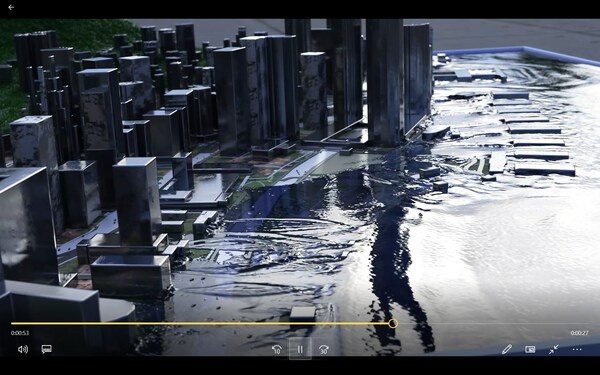No easy way to communicate risks of climate change, new research finds
- Written by PR Newswire

|
- New research from the Singapore Management University shows that having individuals visualise the shock of future climate change failed to motivate them to change behaviour
- Research insights demonstrate the importance of customising communication strategies to different groups, from climate sceptics to individuals already living sustainable lives
- This research paper is newly published in PLOS Climate, an open-access journal that furthers understanding of climatic impacts and solutions[1][2]
SINGAPORE, Feb. 2, 2023 /PRNewswire/ -- There is no easy way to engage with the general public to communicate the risks of climate change, according to a new study. Contrary to the adage of 'seeing is believing', individuals who saw what the future impacts of climate change may look like were not positively motivated to make behavioural changes. This was particularly true for climate sceptics[1] and for individuals who already live more climate-friendly and sustainable lives.
Led by Assistant Professor Terry van Gevelt[3] from the College of Integrative Studies[4], Singapore Management University (SMU), this research investigated the use of immersive virtual experiences to communicate the risks of climate change to the general public, with a focus on coastal cities in Asia. This latest study, "Using virtual simulations of future extreme weather events to communicate climate change risk[5]", is based on experimental survey data from 1,500 respondents in Hong Kong, conducted in 2021.
 Respondents experienced a virtual simulation of a storm surge induced by a future typhoon in Hong Kong
Respondents experienced a virtual simulation of a storm surge induced by a future typhoon in Hong Kong
Elaborating on the research methodology, Assistant Professor Terry van Gevelt said: "We created a completely feasible and rigorous model of an extreme weather event amplified by the expected impacts of climate change. This extreme weather event – a super typhoon –was then modelled to hit an Asian coastal city (Hong Kong, in this case) and we created a virtual simulation of the event. This virtual simulation was used as a risk communication vehicle, or a way to experientially communicate the future impacts of climate change."
The authors underscored the importance of not overestimating the effectiveness of immersive visualisations to communicate climate risks.
"Visualising the devastating impacts of climate change play out in the cities we live in should provide the wake-up call needed to modify individual behaviour and support costly climate adaptation and mitigation measures. Unfortunately, our results suggest that 'seeing is not believing', especially for climate sceptics," said Assistant Professor van Gevelt. "This goes to show that there is no easy solution to communicating climate change risk. Instead, we need to accept complexity and see highly targeted and contextual immersive experiences as one component within a comprehensive engagement strategy."
These research findings were published on 1 February 2023 in PLOS[6] Climate, a Californian-based non-profit and Open Access journal with a focus on collaborative, interdisciplinary and multidisciplinary research to combat climate change. The research was conducted in collaboration with Duke University, Nanyang Technological University, University of Hong Kong, University of Macau, Hohai University and Sun Yat-sen University.
This work was supported by the University Grants Committee of Hong Kong (ref: 17601221), the University of Hong Kong (ref: 104005971.101497.30100.301.01 and ref: 202009002) and an Epic Games MegaGrant. Ethical approval was granted by the Human Research Ethics Committee at the University of Hong Kong (Ref: EA200187).
[1] Climate sceptics refer to individuals who do not think anthropogenic climate change is happening. |
References
- ^ This research paper (journals.plos.org)
- ^ PLOS (plos.org)
- ^ Terry van Gevelt (corecurriculum.smu.edu.sg)
- ^ College of Integrative Studies (cis.smu.edu.sg)
- ^ Using virtual simulations of future extreme weather events to communicate climate change risk (journals.plos.org)
- ^ PLOS (plos.org)
Read more https://www.prnasia.com/story/archive/4003839_AE03839_0







